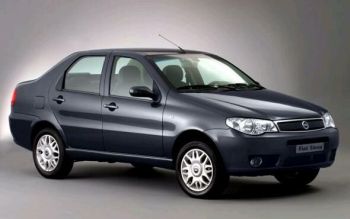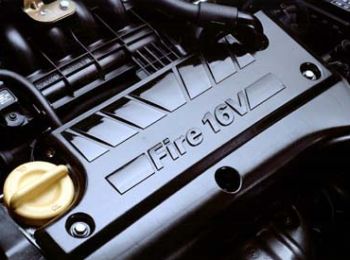|
Fiat Powertrain
Technologies (FPT) has unveiled its first new engine since
the company was formed two months ago: a Brazilian market
bound 'flexible fuel' engine based on the 1.4-litre FIRE
unit.
FPT was formed
at the end of March 2005 when Fiat and GM divorced their Powertrain joint venture
entity, returning the assets, both
physical and intellectual, to their respective owners.
The
newly formed company now operates in twelve countries with
twenty six plants and sixteen research and development centers, combining the
resources, employees and activities of Fiat Auto Powertrain,
Iveco Powertrain, Magneti Marelli Powertrain (including
Motor Sport), Iveco Motoren Forschung and the Powertrain
research activities of the Fiat Research Center and Elasis.
With twenty three thousand employees, eleven thousand of
whom are drawn from Fiat Auto, innovative new technologies,
especially in the area of diesel engines, and a with current
annual output of more than four million engines and
gearboxes, FPT is
expected to swiftly establish itself as a leading industry player.
The new
1.4-litre FIRE-based 'flexfuel' engine was initially being jointly
developed by Fiat and GM in Brazil and destined for Fiat's
entry-level Palio and Siena models, as well as GM's locally-assembled
Corsa variant. However, since the winding up of the Fiat-GM
alliance, the American carmaker is
believed to have shelved its plans to use this new unit.
In an effort to give Brazilian motorists greater convenience,
flexible fuel systems present the opportunity to use either
alcohol or petrol, or a mixture to any
ratio, and is specific to the domestic
market. Fiat introduced a GM-sourced 1.8-litre 'flexfuel'
engine last March when they brought to the market the latest generation
of Palio and Siena 'World Car' models. Unlike the GM units
which had their flexfuel system developed by Delphi, Fiat
chose Magnetti Marelli to develop their own version.
|
 |
|
Fiat Brazil last year introduced a 1.8 GM-sourced
'flex fuel' engine in the latest
generation of Palio and
Siena (above) |
|
|
 |
|
Fiat Powertrain
Technologies has unveiled its new 1.4-litre 8V
'flexi-fuel engine, which is based on the 1.4-litre
16v FIRE unit (above) introduced in mid-2003 on the
third series Punto |
|
|
Over the last
year flexible fuel engines have really shot to prominence,
with some 22 percent of car sales in Brazil in 2004 offering engines which run on
a combination of alcohol, petrol and natural gas. This
year, the major regional carmakers estimate, flexible fuels will rise to half of all
sales. As well as Fiat and GM, the other major local
manufacturer, VW, who introduced the first engine of this
type to the market, is investing heavily to widen its range
of flexible fuel models.
Alcohol has been
around as an alternative to petrol on the Brazilian market
since the early 1970s. The oil global crisis severely hit
the country's economy, prompting the nation's military
rulers of the time to subsidise a huge sugar cane
cultivation and alcohol refining programme, in an effort to
reduce Brazil's dependence on imported oil. Falling oil prices and a
shortage of ethanol saw the popularity of these cars fade
during the 1990s. However with the arrival of flexible fuel
cars, a nationwide network of ethanol distributing stations
still in place, coupled to a recent sharp rise in oil prices, and the
tables have turned once more. Brazilians motorists, for so
long held ransom to the price and availability fluctuations
of either source of fuel, have thus been quick embrace
flexible fuel cars.
by Edd Ellison
|
|
|
|
![]()
![]()